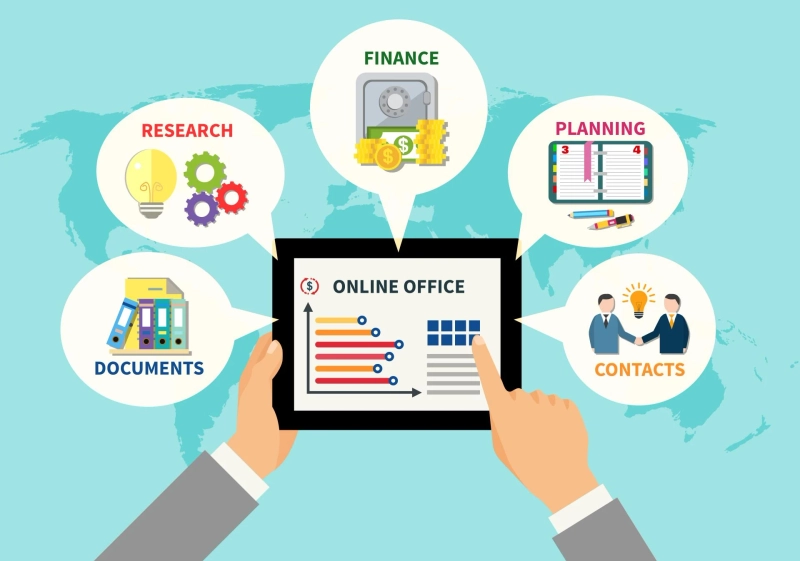The accounting profession is on the brink of a profound transformation. By 2030, the accountant's role will look dramatically different—not just evolving but in many ways, reinventing itself. The crucial question arises: which skills will become relics of the past, and which will be the new linchpins of success? Far beyond the spreadsheet and ledger, the accountants of tomorrow will need to master a distinct set of capabilities. Let’s unlock this future in an intriguing way.
Goodbye Manual Bookkeeping: The End of Routine Entry
Imagine an accountant in 2030 spending hours each day entering invoices or reconciling bank statements—sounds anachronistic, right? Manual bookkeeping is rapidly becoming obsolete as highly automated software and AI-driven systems take over repetitive, rule-based tasks. According to leading workforce studies, roles that revolve around manual data entry and basic bookkeeping will sharply decline due to automation.
For example, firms globally are adopting cloud-based platforms like Xero or QuickBooks Online integrated with AI capabilities—enabling real-time transaction processing without human intervention. This shift not only eliminates drudgery but frees accountants to bring higher-value insights to the table.
Elevating Critical Thinking: The Accountant as a Strategist
As machines handle routine processes, the accountant’s role is shifting towards thinking beyond numbers. Critical thinking will be paramount—accountants will become expert analysts, problem solvers, and strategic advisors. It’s no longer about inputting data but about interpreting what data means for business decisions, risks, and opportunities.
Accountants will need to train their minds to evaluate complex scenarios, question assumptions, and make ethical judgments in increasingly ambiguous environments. For instance, analyzing financial dashboards loaded with AI-curated insights to recommend cash flow strategies or investment plans will replace traditional reporting.
Data Analytics: The New Language of Accounting
Data is the currency of the future, and fluency in data analytics will be non-negotiable. Knowing how to work with large datasets using tools like Power BI, Python, or SQL will be a baseline skill, enabling accountants to uncover patterns, forecast trends, and provide predictive insights rather than historical reports alone.
Imagine an auditor who trains AI systems to highlight anomalies or an accountant who creates dynamic visualizations to communicate financial health to stakeholders. These skills, blending technology with business acumen, will differentiate the future-ready accountant.
ESG Literacy: Accounting’s New Frontier
Another game-changer is Environmental, Social, and Governance (ESG) literacy. As stakeholders demand transparency on sustainability and corporate responsibility, accountants will be required to measure, report, and verify ESG metrics alongside traditional financials. Understanding carbon footprints, social impact assessments, and ethical governance metrics will be pivotal.
For example, firms will rely on accountants who can integrate financial and non-financial data to produce credible ESG reports, influencing investment decisions and corporate strategy on a global scale. This represents an expansive skillset well beyond traditional accounting.
The Human Element: Ethics and Judgment
While technology can automate calculations and detect anomalies, it cannot replace human judgment and ethics. Accountants must uphold integrity, ensuring data privacy, responsible AI use, and transparency in financial disclosures. The profession will increasingly demand not just technical prowess but the wisdom to balance innovation with ethical responsibility.
By 2030, manual bookkeeping will be a vestige of the past, replaced by automation and AI, but accounting as a profession will thrive like never before—transformed into a domain of critical thinkers, analytic storytellers, ESG stewards, and ethical guardians. The ladder to becoming a professional accountant will no longer be about mastering routine tasks but about embracing data fluency, strategic insight, and sustainability literacy. For students, educators, and practitioners alike, preparing for this future means evolving alongside technology, sharpening critical thinking, and embracing the broader societal role accounting will play in shaping a sustainable, transparent business world.
specific manual accounting tasks will be fully automated by 2030
By 2030, the following specific manual accounting tasks are expected to be fully or mostly automated due to advances in AI, robotic process automation (RPA), and smart software systems:
● Data Entry: Approximately 90% of routine data entry tasks, including posting transactions and inputting financial data, will be automated, drastically reducing human involvement.
● Invoice Processing: Around 75% of invoice receipt, data capture, validation, and payment scheduling will be handled by AI-driven systems, minimizing manual invoice handling.
● Accounts Payable and Receivable: Automation will streamline generating and sending invoices, tracking payments, processing incoming invoices, routing approvals, and managing collection activities, significantly reducing manual workload.
● Bank Reconciliations: Automated matching of bank statements and ledger entries will mostly replace manual reconciliation tasks, improving speed and accuracy.
● Payroll Accounting: Payroll processing, including calculations, tax deductions, and disbursing salaries, will be largely managed by automated platforms.
● Expense Management: Automated tools will handle expense data capture, validation, and integration into accounting systems, reducing manual review.
● Tax Preparation and Compliance: AI systems will conduct preliminary tax data analysis, identify deductions or credits, check compliance, and even prepare filings for review, automating much of the routine tax work.
● Audit Support Tasks: Automation and AI will assist with documentation, data extraction, and compliance checks, speeding up audit processes and reducing manual sampling and review.
● Financial Close and Reporting: Routine closing activities such as journal entries, consolidations, and generating standard financial reports will be increasingly automated.
These automations will lower repetitive manual workloads, reduce human error by around 30%, and free accountants to focus on strategic advisory, analysis, and oversight tasks. The transition underscores the urgent need for accountants to build data analytics, critical thinking, and strategic decision-making skills to remain relevant in the profession's future landscape.
This trend toward automation is already accelerating, with 73–83% of firms adopting AI and automation technologies for these tasks by 2025, and the market expected to grow dramatically by 2030.
Are today's accountants ready for this revolution? The future isn’t about replacing accountants; it's about augmenting them with new skills that truly matter.



